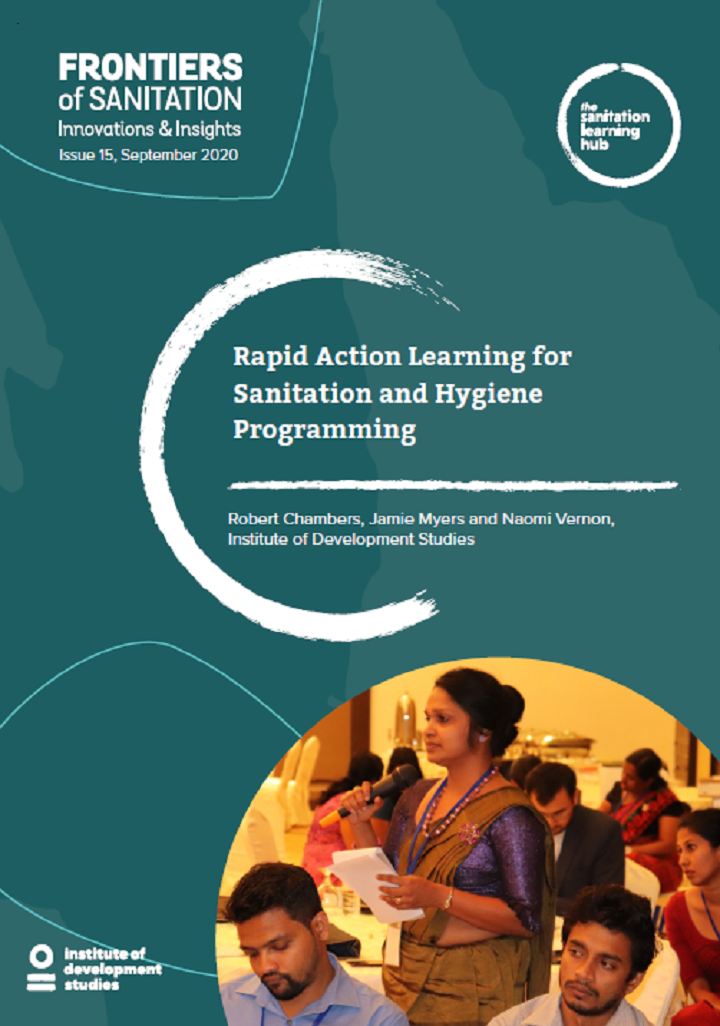Rapid Action Learning for Sanitation and Hygiene Programming Chambers, R.; Myers, J.; Vernon, N. (2020)
In October 2019, a group of leading organisations in the sanitation and hygiene (S&H) sector – Plan International, SNV, UNICEF, WaterAid, the World Bank and World Water Supply and Sanitation Collaborative Council (WSSCC) – published a call to action.1 This stressed renewing commitment and stepping up ambitions and investments to rural S&H and called for evidence-based and adaptive implementation.
Bibliographic information
Chambers, R.; Myers, J.; Vernon, N. (2020). Rapid Action Learning for Sanitation and Hygiene Programming Institute of Development Studies
Filter / Tags
Politicians and local decision makersPractitionersGuidelines and manualsEnglish
External links
More about the publication on the SLH
Downloads
Rapid Action Learning for Sanitation and Hygiene Programming
Type: application/pdf
Size: 5.58 MB

